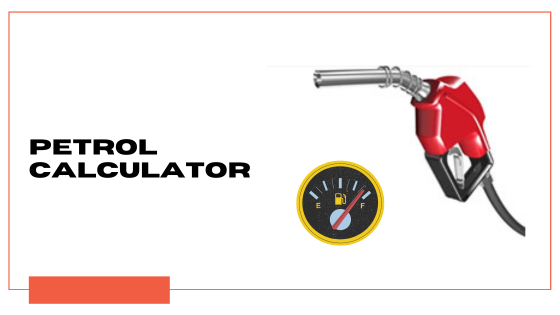
In a world where fuel prices continue to rise and environmental consciousness is at an all-time high, every driver is looking for ways to save money and reduce their ecological footprint. Enter the petrol calculator – an essential tool for motorists seeking to maximize fuel efficiency and minimize costs. Let us explore the benefits of using a petrol calculator, how it works, and the top features to consider when choosing one.
The Benefits of Using a Petrol Calculator
Cost Savings: By calculating your vehicle’s fuel consumption and identifying ways to improve it, a petrol calculator can help you save money on fuel. Knowing your consumption rate allows you to make informed decisions about your driving habits, leading to long-term savings.
Eco-Friendly: Reducing fuel consumption isn’t just good for your wallet – it’s also beneficial for the environment. By using a petrol calculator, you can actively work towards reducing your carbon footprint and contributing to a greener planet.
Improved Vehicle Maintenance: Regularly monitoring your fuel consumption can help you identify when your vehicle may need maintenance. For example, a sudden decrease in fuel efficiency could indicate that it’s time for a tune-up or a tire check.
How Does a Petrol Calculator Work?
A petrol calculator uses data about your vehicle, such as its make, model, and year, along with information about your driving habits and fuel prices, to calculate your fuel consumption and potential savings. Most calculators require the following inputs:
Distance traveled: You’ll need to input the distance of your trip or your car’s odometer reading.
Fuel used: Enter the amount of fuel consumed during that distance or the number of liters you’ve filled up.
Fuel price: Providing the current price per liter, the calculator can determine the cost of your trip or fuel usage.
Once you’ve entered this information, the calculator will compute your fuel consumption in liters per 100 kilometers (L/100km) or miles per gallon (MPG), along with the total cost of your fuel usage.

Top Features to Consider When Choosing a Petrol Calculator
Compatibility: Ensure the calculator supports your vehicle’s make, model, and year to get accurate results.
Units of Measurement: Choose a calculator that supports your preferred unit of measurement, whether it’s L/100km, MPG, or even kilometers per liter (km/L).
Additional Features: Some calculators offer extra features such as tracking multiple vehicles, estimating carbon emissions, or offering tips for improving fuel efficiency.
User-Friendliness: A good petrol calculator should be easy to use, with a clear interface and straightforward input fields.
Conclusion
A petrol calculator is an invaluable tool for any driver looking to save money and reduce their environmental impact. By understanding your vehicle’s fuel consumption, you can make informed decisions about your driving habits and vehicle maintenance. When choosing a petrol calculator, consider factors such as compatibility, units of measurement, additional features, and user-friendliness to find the perfect tool for your needs.


